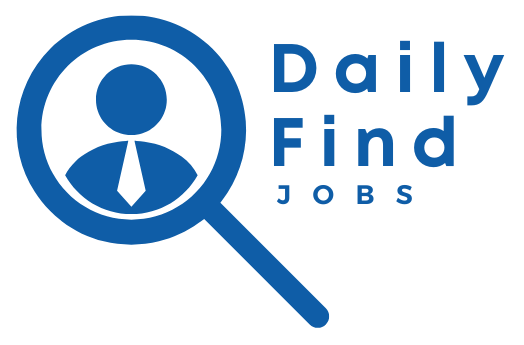In today’s evolving work environment, knowing how to succeed in a remote job is crucial for career growth. With the rise of digital connectivity, remote work offers unparalleled flexibility and opportunities. However, it requires effective strategies and discipline. From mastering time management skills to maintaining professional relationships remotely, these are essential tips to thrive in your remote position.
Master Your Time Management Skills
Time management is crucial for achieving success in a remote job setting. Without the traditional oversight of a physical office, keeping track of your tasks can be challenging. To master time management, create a daily to-do list and set clear goals for each day. Break larger projects into smaller tasks to make them more manageable and less overwhelming. Use techniques like the Pomodoro Technique to maintain focus and energy throughout your work hours. This approach encourages you to work in focused sprints and take regular breaks.
Consider using
calendar apps
to schedule your day. Set specific time slots for meetings, deep work, and breaks, and make sure to stick to these times as much as possible. This helps create a structured routine. It’s also helpful to establish a set time to start and finish work each day to maintain clear boundaries between work and personal life.
Be sure to regularly review and adjust your time management strategies. Identify what works best for you and adapt as needed. By consistently refining your approach to time management, you can enhance your productivity and achieve a better work-life balance in your remote job environment.
Create an Effective Workspace
An effective workspace is essential for success in remote jobs. When working from home, it’s important to set up a designated area exclusively for work. This helps separate professional duties from personal life, enhancing focus and productivity.
Choose the Right Location: Select a quiet and well-lit spot in your home. A room with a door allows you to maintain privacy and reduce noise distractions. Natural light can improve your mood and increase energy levels, so try to position your work area near a window.
Ergonomics Matter: An ergonomic chair and desk setup can prevent discomfort and long-term health issues. Maintain correct posture by adjusting your chair so your feet are flat on the floor and your screen is eye level. Comfortable seating ensures you can work effectively without physical strain.
Organize Your Workspace: Keep your workspace tidy and clutter-free. Use storage systems to organize documents and stationery. A clean and organized desk helps clear your mind, reducing stress and allowing you to concentrate better on tasks.
Personalize to Motivate: Adding personal touches like plants, artwork, or motivational quotes can boost your mood and make the workspace more inviting. However, ensure that personal items do not distract from tasks. Finding the right balance can create a motivating atmosphere.
Ensure Proper Equipment: Invest in a good computer, headset, and microphone to improve communication and performance. High-speed internet is crucial for remote work efficiency, so ensure your connection is reliable.
Utilize Technology Tools Efficiently
To excel in a remote job setting, leveraging technology tools efficiently is crucial. Start by identifying the core tools required for your work, such as communication apps, project management platforms, and file-sharing services.
Communication tools like Slack, Zoom, and Microsoft Teams facilitate seamless interaction with colleagues from any location. Ensure you know how to operate these effectively, including using video call features, chat functions, and managing notifications to stay updated without feeling overwhelmed.
Next, consider project management software such as Asana, Trello, or Monday.com. These help keep track of tasks, set deadlines, and share progress with your team. Utilize their features to organize your work, assign tasks, and collaborate with team members efficiently.
For file sharing and document collaboration, platforms like Google Drive and Dropbox can be incredibly useful. Learn how to share documents, set permissions, and collaborate in real-time, ensuring everyone has access to the necessary resources without unnecessary delays.
Security
It’s also vital to ensure data security within these tools. Use strong passwords, enable two-factor authentication, and be aware of any data protection policies at your workplace. This approach not only protects your work but also builds trust with your employer and colleagues.
Lastly, keep abreast of updates and changes to these tools. They frequently release new features or changes that can improve productivity or security, so staying informed will ensure you continually improve your technological efficiency.
Maintain Professional Relationships Remotely
Building and nurturing professional relationships in a remote work environment requires a strategic approach. Communication is key, so make sure you leverage all the digital tools at your disposal. Regular video calls, instant messaging, and emails help maintain a connection with your colleagues.
Engage with your team through group chats and virtual coffee breaks to build rapport. Even though you’re not physically present, show your personality and be genuinely interested in your coworkers’ lives. This creates a sense of camaraderie and team spirit.
Proactive Communication
Being proactive in communication makes a huge difference. Set up regular check-ins with your manager and peers to discuss ongoing projects and any challenges you might be facing. During these meetings, be open to feedback and willing to offer support where needed.
Continue networking by attending virtual conferences and industry webinars. When you attend such events, engage actively in discussions and follow up with new contacts on professional platforms like LinkedIn. This not only expands your network but also strengthens existing relationships.
Additionally, always show appreciation for your teammates’ efforts. Sending a simple thank you note or acknowledging their hard work in meetings can enhance relationships significantly. Remember, sincerity builds trust.
Prioritize Your Mental Well-being and Work-Life Balance
In the fast-paced world of remote work, it is essential to focus on mental well-being and maintain a healthy work-life balance. Doing so can enhance productivity and overall happiness. Here are some strategies you can implement:
-
Set Boundaries:
Clearly define your work hours and personal time. Inform colleagues of your availability and stick to these hours to avoid burnout.
-
Take Regular Breaks:
Integrate short breaks throughout your day. A simple walk or a few minutes of stretching can refresh your mind and prevent fatigue.
-
Practice Mindfulness:
Engaging in mindfulness exercises or meditation can reduce stress and increase concentration, helping you stay present and efficient during work hours.
-
Connect with Others:
Regularly communicate with family, friends, or support groups. Social interaction, even virtually, can provide emotional support and reduce feelings of isolation.
-
Healthy Lifestyle Choices:
Maintain a balanced diet, exercise regularly, and ensure you get sufficient rest. These factors can significantly contribute to better mental health.
-
Seek Professional Help When Needed:
Don’t hesitate to reach out to mental health professionals if you feel overwhelmed. Professional guidance can be crucial in managing stress.
By prioritizing your mental well-being and achieving a balanced approach to work and life, you’ll be more prepared to thrive in a remote job environment.


